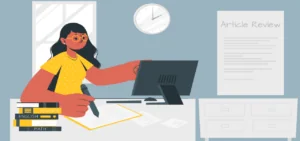 Poetry analysis, also sometimes referred to as a poetry review, is a reflection on a poem that involves analyzing the poetic instruments, discussing the language and the figures used by the author, as well as sharing one’s personal position on the poem. When it comes to poetry analysis, one has to go beyond just reviewing the words and phrases used, but instead see the bigger picture, try to read between the lines, and understand what has driven the poet to use the words he or she used. Thus, poetry analysis requires some primary research on the author of the poem, as well as some background and history behind the poem’s creation.
Poetry analysis, also sometimes referred to as a poetry review, is a reflection on a poem that involves analyzing the poetic instruments, discussing the language and the figures used by the author, as well as sharing one’s personal position on the poem. When it comes to poetry analysis, one has to go beyond just reviewing the words and phrases used, but instead see the bigger picture, try to read between the lines, and understand what has driven the poet to use the words he or she used. Thus, poetry analysis requires some primary research on the author of the poem, as well as some background and history behind the poem’s creation.

✅ AI Essay Writer ✅ AI Detector ✅ Plagchecker ✅ Paraphraser
✅ Summarizer ✅ Citation Generator
Steps for Writing Poetry Analysis
- Read the poem twice, at least. Try to analyze your first impression of it and write down a few comments.
- Research the author of the poem if you are not familiar with him or her yet, and the history of the poem’s creation. Try to find out what inspired the poet and what gave rise to the idea for this particular poem, whether it was a reflection on what the poet personally experienced or witnessed, etc.
- Read the poem once again, this time slower. Try to pay attention to the particular word selection, organization of the poem, and poetic figures used, etc.
- Start your poetry analysis with a description of the story, or situation, depicted in the poem. Make sure to answer the essential questions of literature. Where? When? What happened? What is described? Who is involved? Pay attention to how the author develops the story and what instruments are used to indicate the culmination of the poem.
- Now move onto the technical side of your poetry analysis. Analyze the poem’s rhyme and meter, and the structure of each stanza. Define each poetic figure used and give specific examples of allegories, metaphors, hyperboles, personifications, similes, litotes, and other literary devices. Try to identify the mood of each stanza, whether it is ironic, sad, cheerful, bitter, romantic, philosophical, etc.
- Give your personal reflection of the poem—what you think it is about (normally, there is a figurative sense behind every poem). Here you can go back to your primary research about the author and the poem’s history.
- Give a conclusion. Mention, whether you enjoyed the poem and whether the poet, in your opinion, succeeded in bringing particular feelings and ideas to the reader (the one the author supposedly intended to bring up, in your understanding of the poem).
Topic Selection
A common mistake that many students make when choosing a poem to analyze is picking the one which is the shortest. However, the shortest poems can be the most difficult to analyze, as they often convey their meaning in sharp and tactful ways. Taking this into consideration, don’t rush when choosing a topic; if a teacher didn’t assign you a specific poem, conduct a thorough selection. Read through the poems you liked several times, and choose the one you understand best of all, or that evokes intense sentiments in you. When reading through poems, mind their titles: sometimes they can give you a clue into the understanding of a whole poem. Therefore, even if the poem is difficult to understand, its title can explain a lot.
Key Points to Consider
- Sometimes you are given a poem to analyze without a particular title already assigned. In other cases, you will have a thesis statement or an argument to base your poetry analysis on, and you have to argue for or against the statement given by your professor. It might seem easier to write about the poem in general, however, this isn’t always the case. Even if you are given the freedom to choose a poem for analysis and write it in your own way, we still suggest that you pick a certain critical question or subject for your poetry analysis, just like you would for a critical or argumentative essay. Use the analysis of poetic figures and literary devices, language and rhyme, to make your point and support your argument.
- When analyzing the theme the author depicted in the poem, think of the time when it was written, and try to relate the events described by the poet to the general situation at the time. Another tip is to compare how this author described particular events to the way these same events were described in other literary pieces.
- Think of who the author addresses in the poem. Is it to people in general, to their pen pal or colleague, to the reigning crown, to rebels, or to nature, etc. Think of how the author feels about the supposed reader, whether he or she supports or condemns their readership.
- When reading the poem, for the second and third time, highlight or underline the phrases or separate words that are most powerful, colorful, or distinctive. You might get a different impression every time, so it is useful to preserve your memories and feelings from every new reading.
- Sometimes it is more effective to read the poem out loud, using certain voice changes (speed, pitch, volume, and mood of your voice), depending on how the poem develops.
Do and Don’t
Do
|
Don’t
|
Common Mistakes
- Writing a shallow, superficial poetry analysis is probably the most common mistake students make. Go beyond simply describing the story and the theme of the poem. Try to guess what message the author intended to bring across, and what they really meant when using the description of natural phenomena or inanimate objects.
- Dryly analyzing the technical side of the poem, forgetting about the personal reflection and feelings that lay behind the words and phrases, is also a common mistake. Forgetting to dedicate at least a couple of paragraphs to the emotional side of the poem will result in a failed poetry analysis. If you find it hard to form your personal opinion on the piece, try to picture the situation or events in the story, take the place of the character and vividly imagine your reaction.
- Not providing examples from the text is also considered a serious flaw. You have to be able to support any argument with a quote, to demonstrate that a certain poetic figure is indeed present in the text by citing the example. However, there is no need to quote a whole stanza if you are talking about a certain literary element.
- Being template-like in your analysis is a rather frequent problem for students who get confused by the poem, or are afraid that they didn’t understand it properly. When it comes to poetry analysis, there is no right or wrong opinion on a poem. It is your individual perception that counts.
Now that you have acquainted yourself with the basic poetry analysis writing tips and rules, you can check out our best poetry analysis samples to link theory with practice.
Follow us on Reddit for more insights and updates.




Comments (0)
Welcome to A*Help comments!
We’re all about debate and discussion at A*Help.
We value the diverse opinions of users, so you may find points of view that you don’t agree with. And that’s cool. However, there are certain things we’re not OK with: attempts to manipulate our data in any way, for example, or the posting of discriminative, offensive, hateful, or disparaging material.